Photography by Kira Hak
On a cool January night, we sat tucked into a small shelter made of piled stones and tried to warm ourselves beside a stubborn fire. This part was supposed to be the relaxing bit after a long day’s ride. Dinner was almost ready when an odd flashlight pattern was revealed in the distance, scanning the hillsides as if looking for something. We walked a few paces to look over the ridge our camp was nestled behind and saw not one but half a dozen high-intensity beams spread over a few kilometres—all scanning, all steadily marching along the mountainside. These were not shepherds looking for a lost flock, which left only two reasonable possibilities: either this was the Peshmerga, a Kurdish military force whose name means “those who face death,” or the Kurdistan Workers’ Party (PKK), a militant separatist group who the international community considers a terrorist organization. Here in the Zagros Mountains of northern Iraq, either could be true. Realistically, it was probably just a military patrol, despite where our imaginations landed. All the same, we kept our lights off and let the fire die out, convincing ourselves it was time for bed anyway.
What were we doing in Iraq in the first place, and how did we get there? Perhaps the better question is what happened along the way on this connecting link to the Arabian peninsula that changed our opinions and opened our eyes to the beauty of a country too easily dismissed by the world at large.


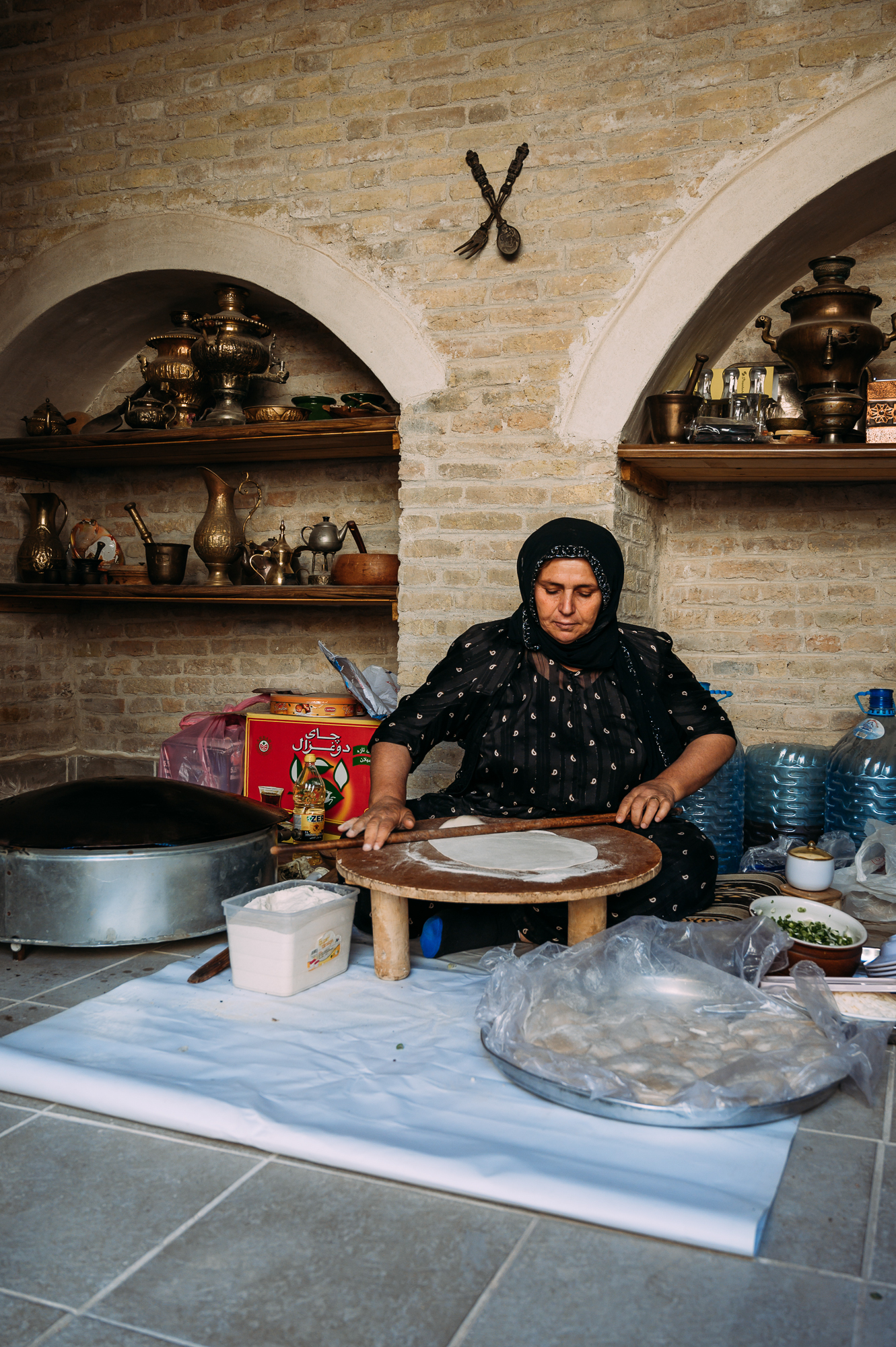
Our path had slowly sifted out from a long list of choices as we made our way east across the Asian continent. A short story could be written on this process alone [“Creative (Driver’s) License,” Ashley Giordano, Winter 2023], but after months of careful deliberation, there was only one overland option: navigation through Iraq, with the hopes of surpassing the Kurdish/Iraqi visa grey area encompassing the route. With nothing to lose, other than the possibility of being locked in Kurdistan for the next three months (due to Turkish visa regulations), we crossed the longest border of our travel lives. Our experiences on either side of this contentious man-made line were polar opposites. Perhaps it was the weariness following the drawn-out Turkish exit that accentuated our warm reception into Iraq. Still, it felt as though a weight had been lifted as we enjoyed a welcome meal provided by the Kurdish military (Peshmerga). An unaccustomed level of kindness and generosity soon became the theme of Iraq, a crucial balance to the daily challenges we were about to face.
Entering a new country is like a revitalizing wave, washing over a shoreline set by a steady tide. The new culture, food, language, and landscapes barrage the senses in stimulating abundance, levelling the sands shaped by the previous destination. We didn’t know what to expect here in Iraqi Kurdistan, but along with an affable reception, we were greeted and surprised by the rugged beauty of the terrain. The northeastern corner of Iraq is home to a portion of the Zagros Mountains, and traversing the area’s majesty became a top priority. Within the first day, though, it became apparent this was not a place where we could roam at will.
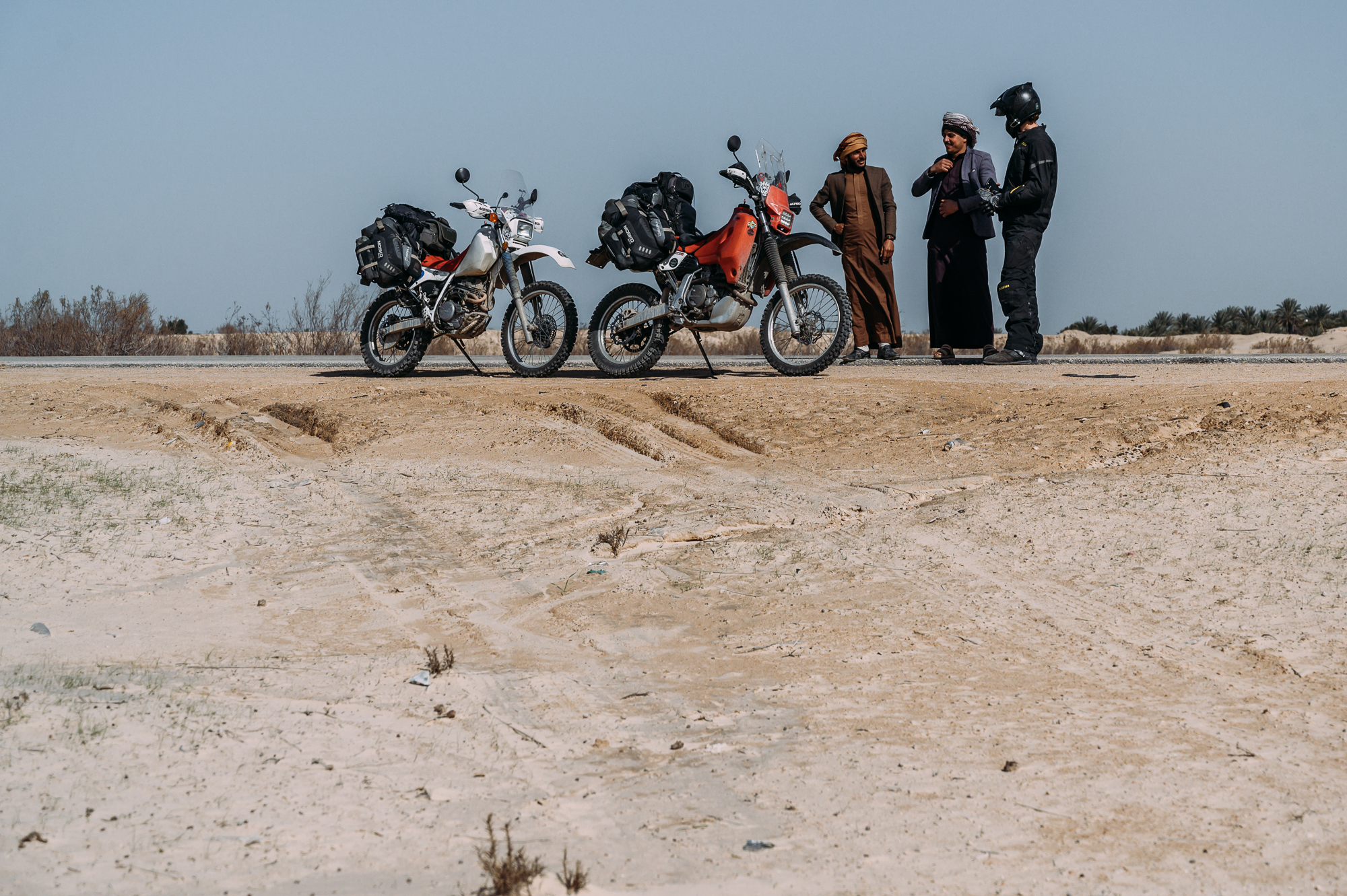
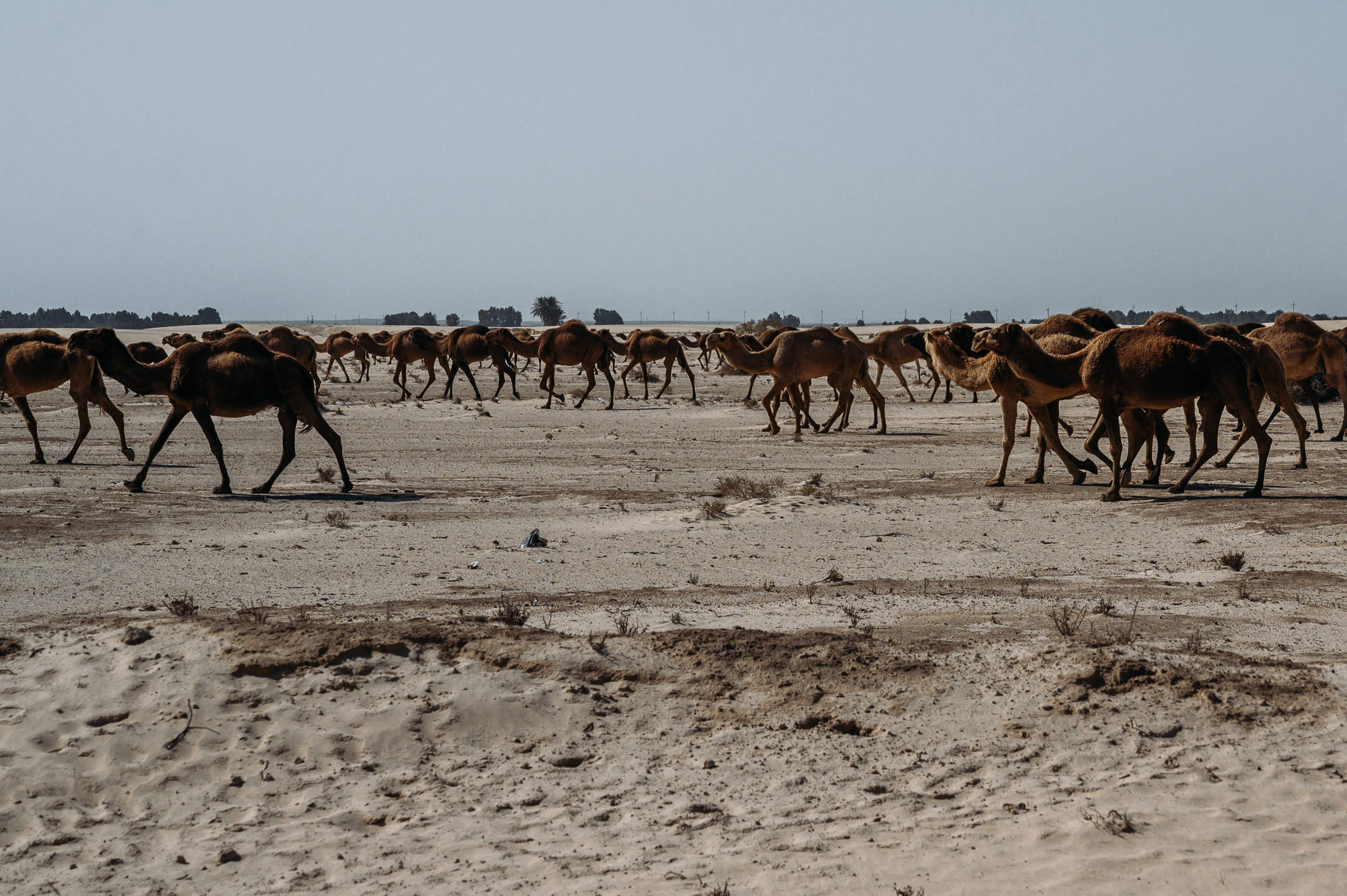
Military checkpoints are ubiquitous in Kurdistan and took some getting used to. Our passports and proposed itineraries were always checked before we could either continue or be forced to choose another route on the spot. These detours were due to the fact we’d be entering pockets of PKK territory. Varying stories surfaced about the level of danger posed directly by the PKK, but the general consensus was that our immediate threat came from Turkish drone strikes against them. The Peshmerga feared for us being in the wrong place at the wrong time, so we would alter our course and carry on without a fuss. In hindsight, these checkpoints were a breeze compared to what we’d find in the Republic of Iraq.
We’ve now come full circle back to our quiet camp in a potentially precarious location. It was easy to lose sight of our location during the days, as the mountains and canyons betrayed no traces of the mortal disputes engulfing the region. It was some of the most scenic and raw nature we had encountered in this part of the world, and it was only upon entering areas of habitation that the full picture would become clear. Or, apparently, a few flashlights could also bring our fantasy tour back to reality. We felt confident in our safety; having our guard up felt prudent nonetheless.
Yet, our walls were only so high as to keep tabs on the overall situation and not imposing enough to block out cultural experiences. Some might get a little unnerved to have a stranger stalk them in a car (in Iraq, no less) and then wave them down to talk. The first time this happened, we instead saw an opportunity and obliged a conversation, which turned into a genuine friendship. Our new Kurdish pal showed us around the city like we were family visiting from out of town. Hidden hiking trails, hole-in-the-wall restaurants, and historical landmarks were laid out before us. This chance meeting spawned a network of contacts throughout the region, resulting in a series of memorable moments as guests. It was common to be approached out of nowhere, and this was a valuable cultural exchange for both parties. So, despite our moods at the time, we tried our best to be congenial visitors and engage in the moment.
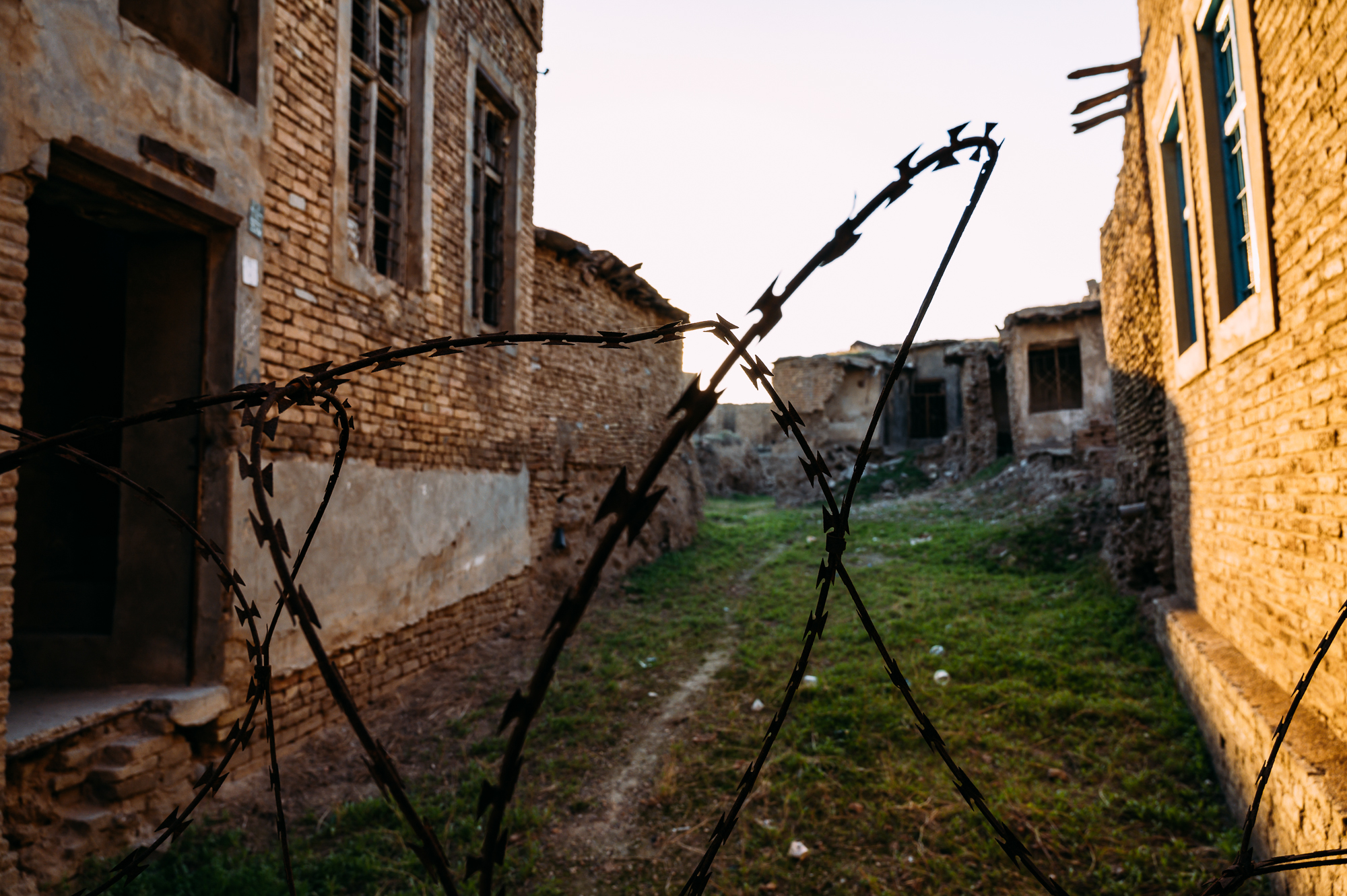
Razor wire guards the closed sections of the Erbil Citadel.
We found ourselves needing to fly to Baghdad to obtain an Iraqi visa, and our controversial endeavor was successful in more ways than one since we were taken under the wing of a new group of friends whom we had met in a remote canyon in Kurdistan a few weeks prior. Because of this chance meeting, a side of the city revealed itself that was a more accurate semblance of daily life than one might imagine. While being chauffeured through the chaotic traffic, watching the scenes pass by in fascination, I couldn’t have guessed what kind of strange and culturally contrasting activity we were about to embark upon, and man, was I surprised. We went bowling. We laughed and talked of life in Iraq, an occurrence directly due to placing a little faith in humanity and taking a stranger up on their invitation.
It wasn’t only the hobbies and pastimes we came to see, though. Without having to ask, each person we spent time with gave us insight into the story of Iraq from their perspective as people living in it, with a collective desire for the world to better understand the events that have shaped the country. Learning of the history of war and conflict was a sobering undertaking, from the first memorial cafe we visited in Kurdistan, honouring the soldiers who gave their lives against ISIS, to the Al-Shaheed Monument or Martyr’s Monument in Baghdad, which pays tribute to the casualties from the Iran–Iraq War.
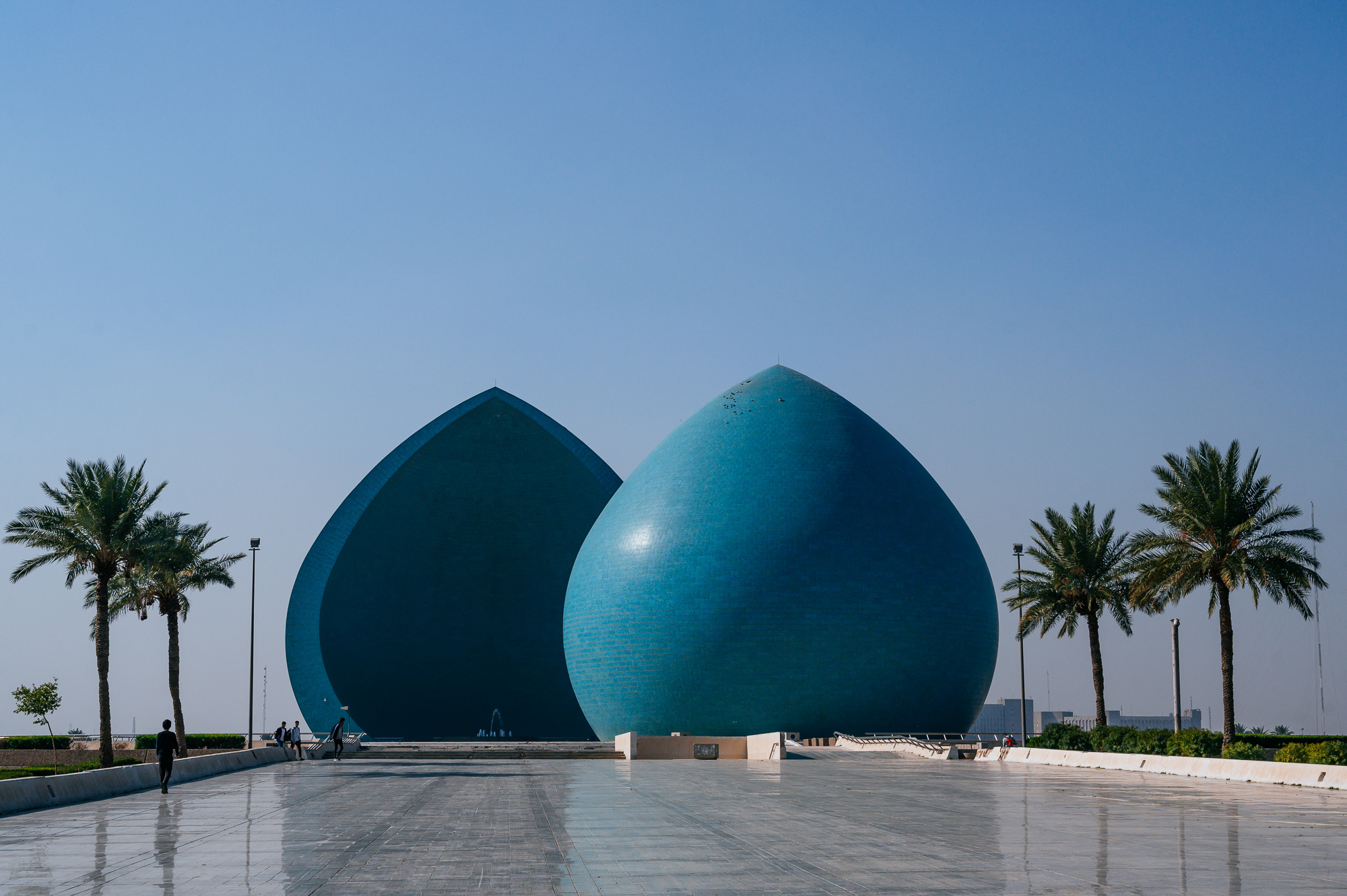
The comparative freedom of movement in Kurdistan was missed as we started our trek south through Iraq. There are regions we were advised to steer clear of, so they fell far from our course, but this had little bearing on our feelings of restriction. Generally, we have some form of grand plan, though the daily events are preferred by the seat of our pants, which was not possible here. A destination was required to pass the checkpoints. “Going south” was not an acceptable answer. So our usual approach to overland travel, best described as wandering aimlessly, had to adapt to a new set of rules.


The sheer amount of time it took in a day to get from point A to B left no room to look for the hidden camps we so love to find. Although, to be honest, the desire to camp was fading into a distant memory. One of the greatest joys (and burdens) of travelling by motorcycle is that you are so in tune with the environment. Each degree of temperature change is registered, and no passing scent is too fleeting to take in. By and large, this is a good thing, but here, it became a daily assault on our senses. Our morale slowly eroded as our throats burned from heavy fumes, our eyes sore from the refuse generated by inadequate waste management, and our nostrils begged for respite following repeated smells of decaying animal carcasses and burning garbage. Finding a clean and relaxing pitch in the countryside was hard to imagine. We would then have to snap out of our environmental recoil every few kilometres and cheerily interact with the next military checkpoint—easily done on days 1 to 5, taxing by days 6 to 12.
After the initial questioning in Arabic and our broken, mimed responses, we were always well-received. The soldiers would offer us water or food and, at times, even invite us into the barracks while clearance was gained—anywhere from 10 to 45 minutes, providing time for the inevitable photo shoot. It is not officially permitted to take photos of military personnel or infrastructure; however, after they got their selfies with us, we felt comfortable asking. Snapping photos with these heavily armed soldiers was definitely novel as well as conflicting. Posing for a picture inside an armoured Humvee riddled with bullet holes or standing adjacent to a bomb crater and smiling has a strange effect. We couldn’t help but think about past events and the darker side of humanity.


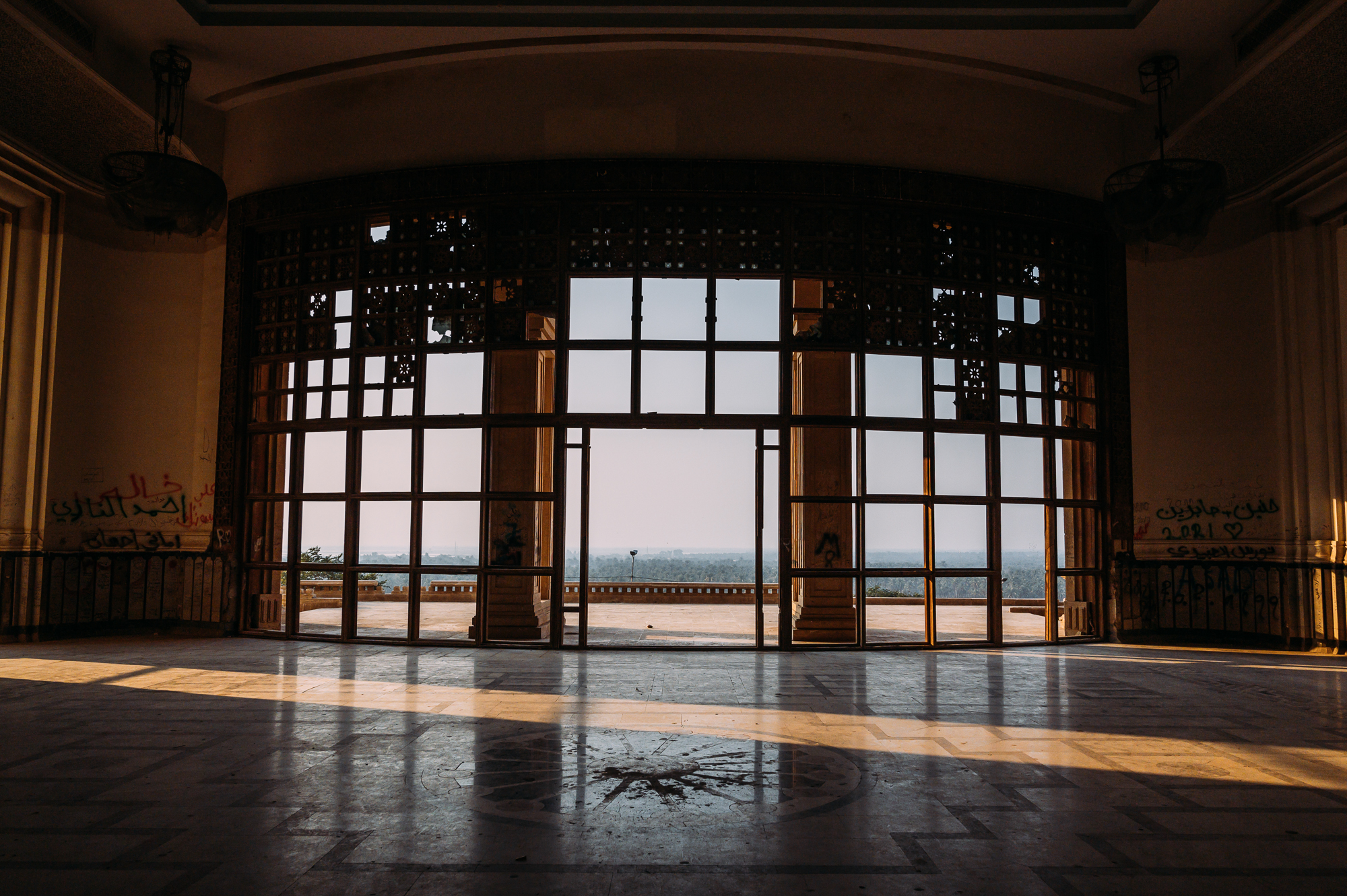
Saddam Hussein’s former palaces are under ownership by the Iraqi government. Some are derelict, while others have been used to house museums, such as in Basra.
Most days ended with a police escort after an officer realized our situation and decided it was too dangerous for us to continue in the dark. It was a welcome surrender, as it meant blowing past every subsequent checkpoint and being led to a hotel that was open, something in itself that had proved problematic. Hotels are only common in major cities, and often, that nice place our Google compass pointed to all day would turn into a derelict building. Yet, as these new patterns emerged, we learned to relax and go with the flow. Because if the police or military weren’t there to help, there always seemed to be numerous civilians eager to cater to road-weary wanderers.
The safe havens that marked a day’s end were, at times, a stark contrast to what we’d seen throughout the day. Exhaustion would compel us to accept an invite, and our spirits would lift as we were guided away from the congested Iraqi roadways. It was refreshing to find pockets of paradise hidden from the narrow view of passersby. It was in these moments of relative comfort that our eyes opened to the beauty of the culture as ribbons of Mesopotamian enchantment unfurled before us. Like everything else encountered in Iraq, even this was steeped in contradictory emotions. In order to find ourselves in these places, we had to forgo our independence. This new version of seat-of-our-pants travel meant relying on someone else to cinch the belt and zip the fly. That is until morning arrived, and we’d have to find the courage to venture out and do it all over again.
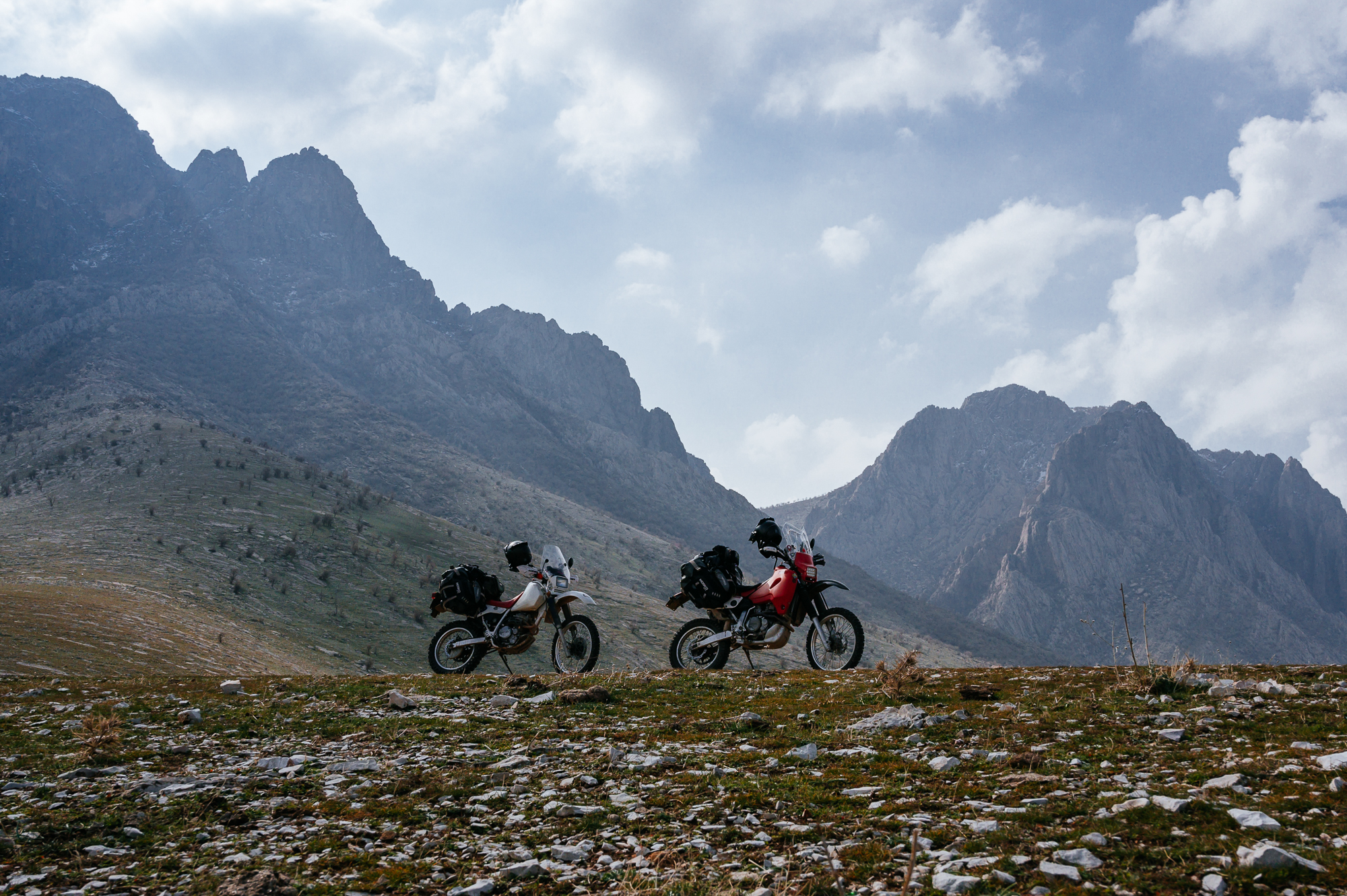
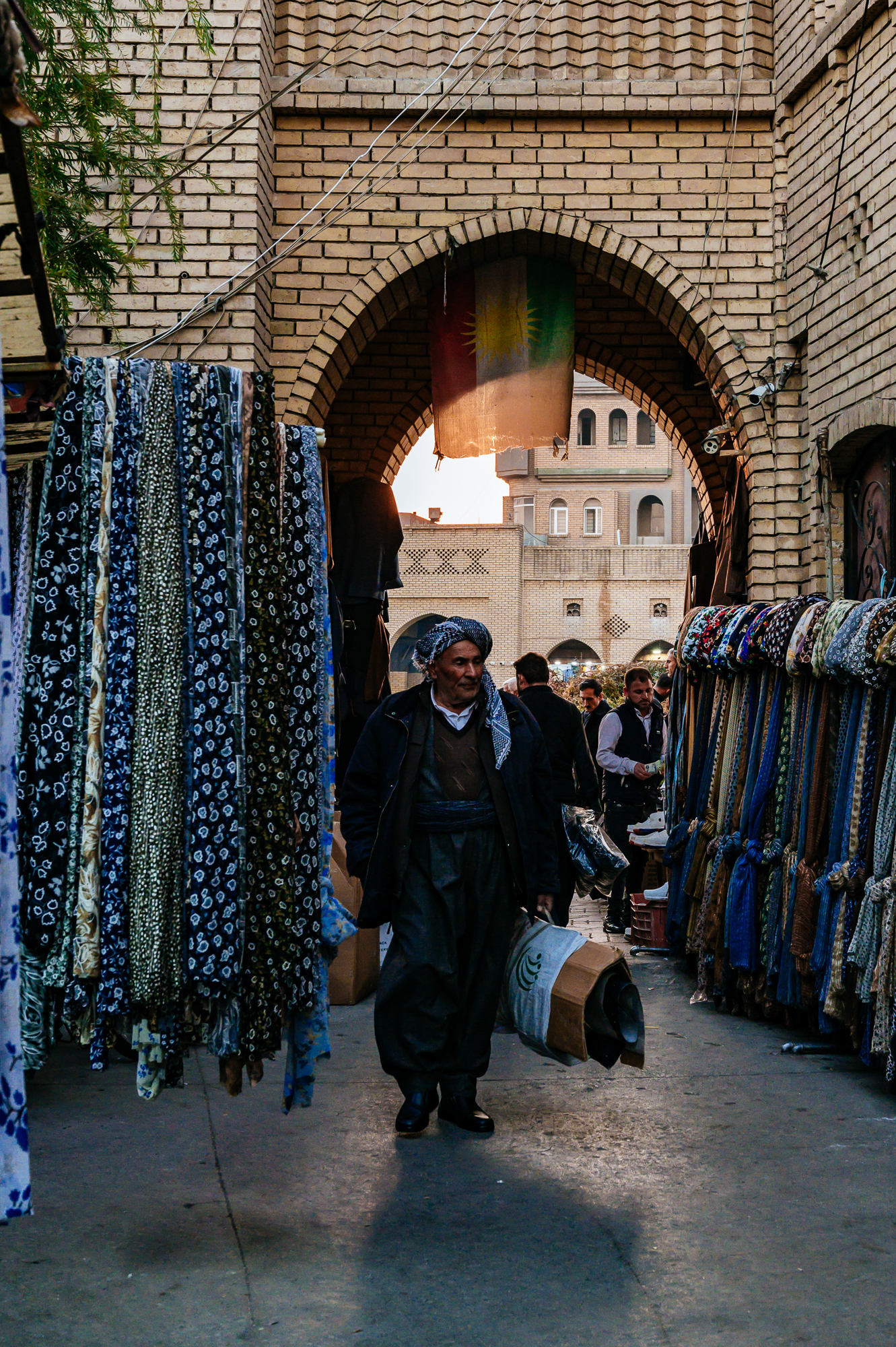

Each day was wildly unpredictable; something as simple as making it a hundred kilometres down the road was not certain. A seemingly short day could be derailed without notice, such as when we found ourselves stuck in traffic riding into Nasiriyah. At first, skirting between lanes at a snail’s pace (not ideal for air-cooled motorcycles on a blazing hot day), it seemed feasible that this city simply had terrible traffic, but as we neared the centre, the police barricades and throngs of people on foot became visible. We put two and two together and reasoned there was an event going on. With the bikes overheating, we finally surmounted the vehicles and slipped through the barricades en route to our hotel. At this point, one motorcycle was trailing a line of fuel from the carburetor, man and machine(s) suffering from heat exhaustion as we weaved through the crowd.
In front of our proposed hotel, I turned off the fuel valve, and we instantly decided not to stay. But in the split seconds it took to come to this realization, the sea of people started to close around us. Within two minutes, we were locked in, every possible space being filled by a body. Looking out over the heads of those around us, I could see hundreds of people approaching from all directions. It was an amicable mob, overwhelming in the pandemonium nonetheless. I was able to ask an English-speaking fellow what was going on. “Oh, there’s a protest happening,” he replied with a big smile. Although I’d certainly have felt more comfortable if it had been a farmer’s market, before we could worry too much, the military pushed through to see what was happening. After learning our story, they surrounded our bikes and started our extraction.
To be clear, we didn’t feel threatened, but the officers believed there was dangerous potential here. To argue their reasoning was pointless; there was no choice in the matter. In the custody of the Iraqi military yet again, we walked the bikes about a kilometre through a trailing crowd, shaking our heads at the absurdity of the situation. Once behind a concrete barricade, they arranged our escort out of the city, and we diagnosed our fuel-spilling issue. The general in charge of the area personally escorted us to a hotel far above our budget before releasing us and our passports. We were grateful, but another day ended upon reliance on someone else.
This scenario added to our growing question: what exactly were the safety issues here? Everyone we encountered was extremely approachable. Even amid a protest against government corruption, we were surrounded by joy and delight at our arrival. Whenever it felt appropriate, we would ask what the safety concern for foreigners was, consulting police officers, soldiers, and civilians, each time receiving differing answers. Bandits, Ali Baba (dishonest people), and the remnants of ISIS were among the varying responses. However, a recurrent and plausible reply was that overprotective precautions were standard. Many people asserted that it would be bad for Iraq if something happened to us here, so the chance is not taken. It’s an understandable predicament, and from that realization onwards, we tried to ride the tide of police escorts, military protection, and safeguarding civilians without claustrophobic frustrations.
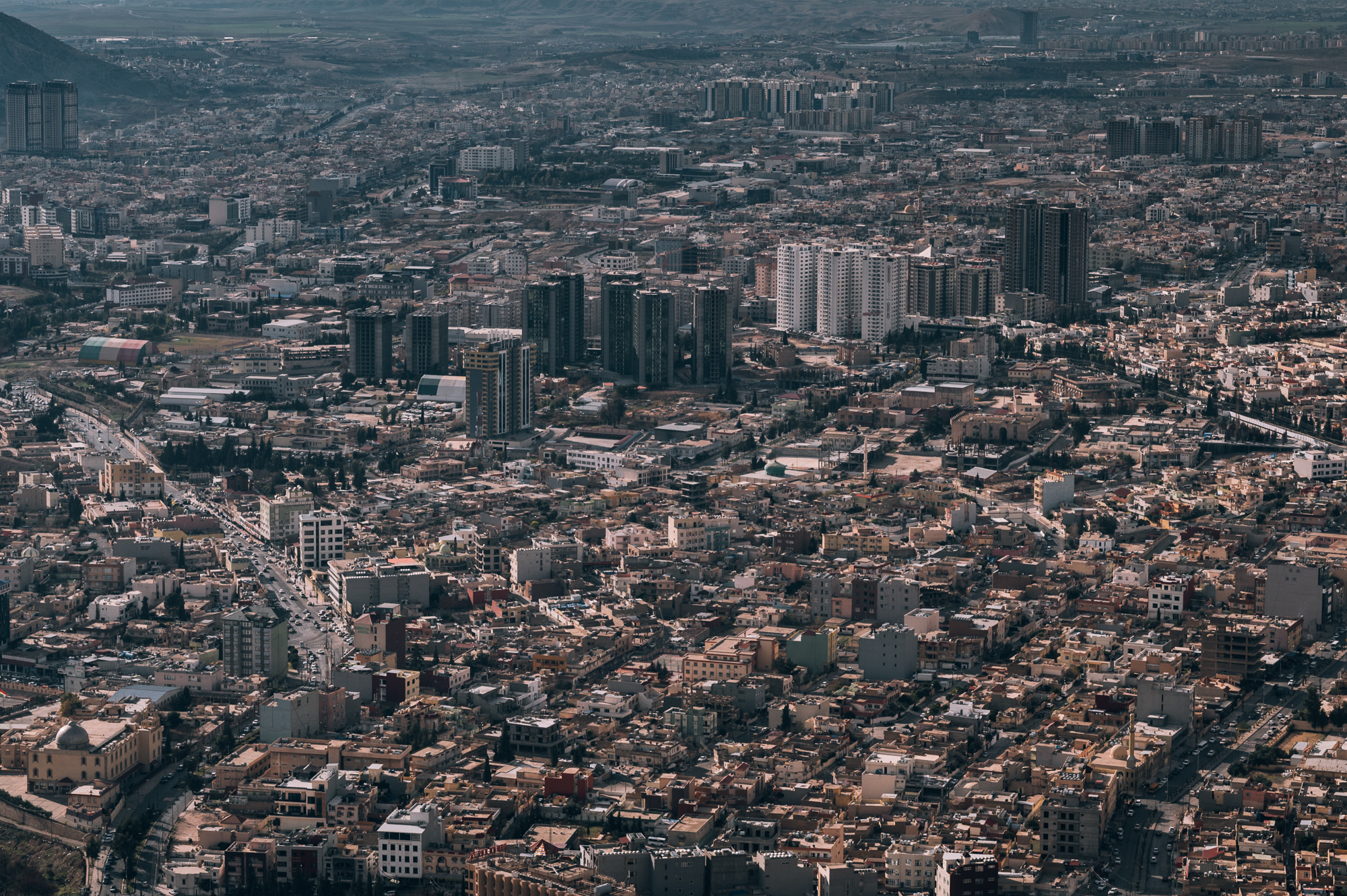
I don’t believe there is a way to condense the essence of Iraq into a few pages. It would be presumptuous to pass through and point out all the surface-level problems the country faces and call that a summary. At the same time, it is conflicting to highlight the kindness and generosity of the Iraqi people without mentioning some of the country’s obvious deficits. There is a lack of reliable basic infrastructure, and in almost every sphere of public and private service, we noticed that temporary measures have been adopted in place of long-term solutions. After long deliberation, we don’t feel it is our place to talk about the issues the country is trying to cope with after decades of armed conflict and political corruption. To put a simple cause-and-effect label on anything in a country as nuanced as Iraq would do a terrible disservice to the Iraqi people and the reader alike.
From an overlanding perspective, this was undoubtedly one of the most ambitious places we’ve travelled, mainly because unencumbered movement is very limited. Not once did we feel unsafe, which isn’t to say that it’s a safe country; rather, the level of security was sufficient for us to pass through without harm. Not a day went by when we weren’t greeted as family by strangers passing on the street or had someone express how happy they were that we were there. The people wanted the world to know that Iraq is more than what the media has made it out to be. We thought we had an empty slate going in, but whether you’ve spent time thinking about the country or not, we all have a subconscious opinion of Iraq. However slight, all our preconceived notions were shattered and rebuilt by the unending kindness and generosity of the Iraqi people and a landscape that fostered the beginnings of modern civilization.
Our No Compromise Clause: We do not accept advertorial content or allow advertising to influence our coverage, and our contributors are guaranteed editorial independence. Overland International may earn a small commission from affiliate links included in this article. We appreciate your support.
Editor’s Note: This article was originally published in Overland Journal’s Gear 2024 Issue.


